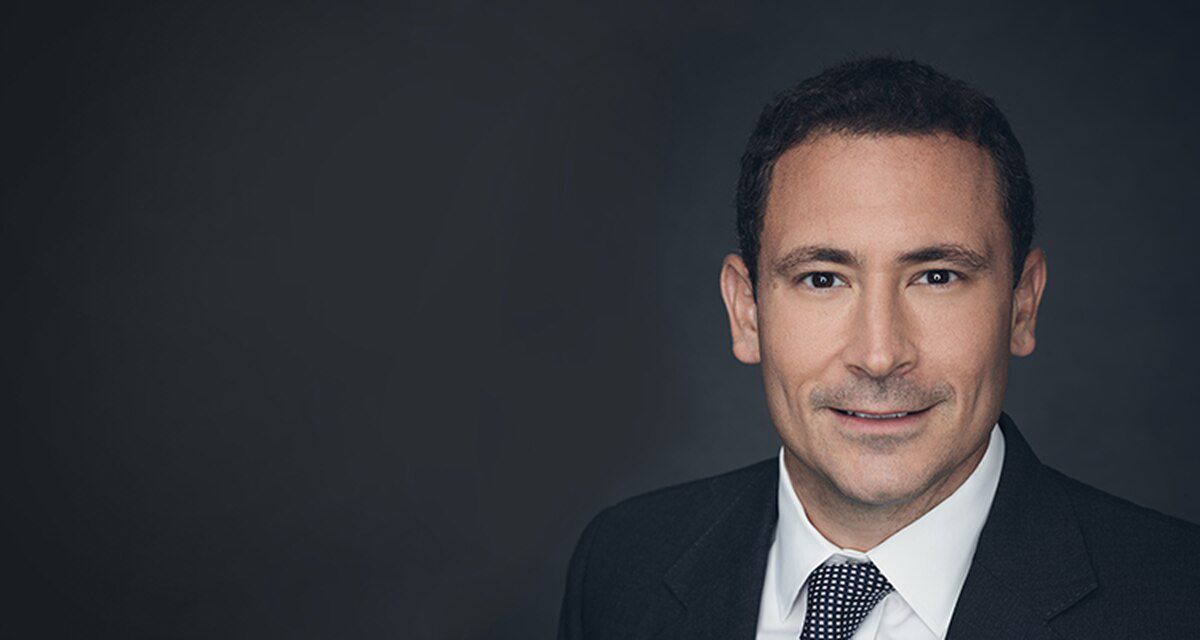Can this investor raise $1.1 billion for building gene therapy factories in King of Prussia?

Ever since Glaxo gave up part of the old SmithKline campus that sits above the Schuylkill between West Conshohocken and Bridgeport a couple of years ago, King of Prussia-based developer Brian O’Neill has been trying to figure out how to turn a profit on the surplus property.
Deerfield Management Co., the New York investment firm that has made bets on more than 100 biotech firms, including several in the Philadelphia area, has the latest plan: Build 680,000 square feet of gene and cell therapy labs and offices for fast-growing Philadelphia biotech drug producers, employing up to 2,000 white-coated factory workers, scientists, and support staff.
All Deerfield needs now is to find investors to pour $1.1 billion into the project. Plus some tenants, according to Alex Karnal, the Deerfield partner and managing director (and onetime quarterback for the MIT varsity football team) who is overseeing the effort.
Deerfield, which trails only SoftBank and New Enterprise Associates among the largest active U.S. venture investors, according to Prequin Ltd., is developing a similar project at 345 Park Ave. S. in New York. That project — 12 stories, 325,000 square feet of expensive New York office and lab space — is financed by $100 million of Deerfield’s own money, plus $500 million from two investment partners: Stephen Schwarzman’s Blackstone and Connecticut-based LoanCore Capital.
Karnal says there are stores on the ground floor, and Deerfield will move its headquarters there while the Chicago-based Matter biotech incubator has agreed to take another floor. Other tenants from New York’s university-hospital-based biotech scene are in talks. He said Deerfield is building in New York “on spec” — with or without ready tenants.
Is Deerfield as serious about Philly? As “the largest biotech-focused investment manager,” Deerfield wouldn’t likely lend its name “if it wasn’t for real,” suggests Martin Lehr, chief executive of University City-based Context Therapeutics and a relentless advocate of the city’s biotech sector.
Tmunity, the gene therapy developer based on technology built by Penn’s Carl June and his colleagues, is developing its own R&D lab and factory at the former Tengion plant near Norristown.
And Spark Therapeutics — recently acquired by Roche, which plans to make Spark the center of its expanding global gene and cell therapy business — is looking for a factory location in or near Philadelphia, according to CEO Jeffrey Marrazzo.
“It will take a while to build and get the site accredited” as a biotech lab center, Lehr said of Deerfield’s Pennsylvania effort. “That said, it is a huge, crazy win for Philly, even if they accomplish 25% of their target.”
In the region, those include Spark, which Roche acquired for an industry-inspiring $4.3 billion last month; Regenxbio, a Maryland company developing medicines and more based on research by Penn gene therapy researcher James Wilson; Chondrial, a Bala Cynwyd company building therapies from cell mitochondria; and Recovery Centers of America, O’Neill’s own residential drug rehab chain, which received a $231 million commitment from Deerfield in 2016 and grew rapidly.
According to Karnal, Deerfield has now been doing biotech investments for so long that he and managing director James Flynn have come to see the delays associated with setting up super-clean, licensed commercial labs as the bottleneck in getting new treatments to market, and an investment opportunity.
Karnal says O’Neill proved a fast, risk-savvy partner as he grew Recovery Centers. “That had been a disgusting industry, mom-and-pop businesses charging $30,000 a month, treatment was poor, sites terrible, [patients left] laden with debt,” he told me. Thanks to the Affordable Care Act (Obamacare), the new company was able to rely on insured patients — “92%” — and O’Neill’s “unique” expertise at finding and updating local properties helped meet growing demand.
If he can convince investors, Karnal hopes to break ground by December, build the labs “on spec,” and be “complete and fully operational” for the first producers by the end of 2021.
O’Neill calls the SmithKline site the Discovery Labs. He and Deerfield call their joint venture the Center for Breakthrough Medicines, which would do business, like WuXi AppTec, as a contract development and manufacturing organization. Features will include “process development, plasmid DNA, viral vectors, cell banking, cell processing, and support testing capabilities all under one roof,” according to O’Neill’s statement.
 Pathways Drug Rehabilitation Luxury Addiction Treatment & Detox Center
Pathways Drug Rehabilitation Luxury Addiction Treatment & Detox Center


